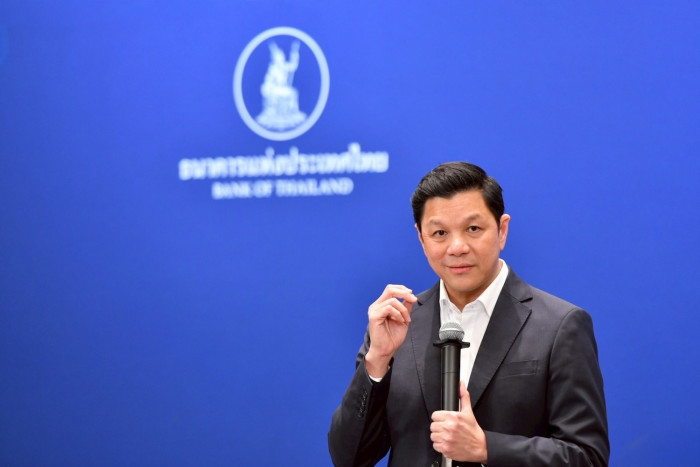Key Takeaways
- Bank of Thailand Governor wants weaker baht to support economic growth
- Central bank has room for further interest rate cuts if needed
- Thai economy grew just 1.2% in Q3, weakest pace in four years
- Government investigating “grey money” flows that may be strengthening baht
Bank of Thailand Governor Vitai Ratanakorn has called for a weaker baht, stating it would benefit the economy and that the central bank has room to cut interest rates further if required to support growth.
Baht Performance and Economic Impact
The Thai baht has gained approximately 6% against the US dollar this year, making it Asia’s second-best performing currency. This strength has threatened Thailand’s crucial export and tourism sectors.
“The central bank wants to see the baht weaken to an appropriate level that reflects the true state of our economy,” Mr Vitai told reporters in Chiang Mai, without specifying a target level.
He added, “I think the baht can weaken further,” noting the currency’s strength has been driven by a weaker US dollar and Thailand’s current account surplus.
Interest Rate Outlook
The Bank of Thailand governor confirmed there is room for additional rate cuts. “We’re reviewing the data. There is room for a further cut,” he stated.
Thailand’s headline inflation has remained in negative territory for seven consecutive months. The central bank’s Monetary Policy Committee maintained its key rate at 1.50% on October 8, following four reductions over the past year. The next rate decision is scheduled for December 17.
Economic Challenges
The Thai economy faces multiple headwinds including US tariffs, high household debt, and the strong baht. Economic growth slowed to just 1.2% year-on-year in the third quarter – the weakest pace in four years. Quarter-on-quarter, GDP contracted by 0.6%.
The central bank projects growth of 2.2% this year and 1.6% next year, down from 2.5% in the previous year.
Government Action on Currency Strength
The government of Prime Minister Anutin Charnvirakul has established a “Connect the Dots” task force to investigate irregular money flows that may be contributing to the baht’s unusual strength despite Thailand’s economic challenges.
A special team will track suspicious fund movements connected to online gambling, scam accounts, and other “grey money” transactions.
Mr Vitai said the Bank of Thailand is prepared to use policy tools if speculators cause currency distortions, but cautioned that the central bank can only reduce volatility, not reverse exchange-rate trends.




